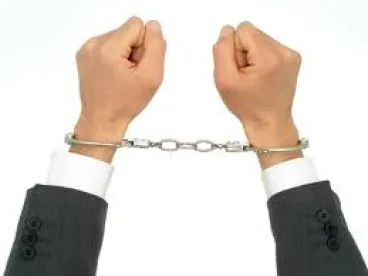The U.S. Justice of Department (DOJ) nearly two years ago announced an uptick in its battle against corporate wrongdoing, taking the fight into boardrooms and offices in pursuit of individuals involved in corporate misconduct. The effort, announced in a memo authored by then-Deputy Attorney General Sally Yates, applied “new” guidance for both criminal and civil matters.
The memo identified four principal goals: (1) deterring future illegal activity; (2) incentivizing change in corporate behavior; (3) ensuring the proper parties are held responsible for their actions; and (4) promoting public confidence in the justice system. To answer some questions that the memo raised, the DOJ launched a website at the end of last year to review frequently asked questions. https://www.justice.gov/dag/individual-accountability.
The answers provided to these FAQs, provide some level of assistance to both practitioners and businesses moving forward in a regulated business climate. They also send a clear signal that DOJ intends to continue its focus on individual liability from the start of every corporate investigation. As Yates stated during remarks made at the 33rd Annual International Conference on Foreign Corrupt Practices Act on Nov. 30: “Holding individuals accountable for corporate wrongdoing isn’t ideological, it’s good law enforcement.”
Below are the FAQs addressed by the Department and its responses include the following:
1. How did the Individual Accountability Policy change the requirements of corporate cooperation?
Prior to initiating the Individual Accountability Policy, a company could be eligible for cooperation credit even when it had not disclosed basic facts about “who” did what. Pursuant to the policy, a company must now provide all non-privileged relevant information about individuals who were involved in misconduct to receive consideration for cooperation. The Department makes clear that this is a threshold requirement. If not satisfied, the company will not be eligible for cooperation credit.
2. What else is a cooperating company required to do?
While the Department makes clear that companies, like individuals, are not required to cooperate, it is clear that no cooperation credit will be forthcoming without turning over all non-privileged relevant information concerning individuals who were involved in misconduct. While such disclosure is certainly a start in the right direction, the actual credit received will depend on additional factors such as: (1) the timeliness of cooperation; (2) the diligence, thoroughness and speed of the internal investigation; and (3) the proactive nature of the cooperation. See USAM 9-28.700 and 9-28.710 fn. 1 (“There are other dimensions of cooperation beyond the mere disclosure of facts, such as providing non-privileged documents and other evidence, making witnesses available for interviews, and assisting in the interpretation of complex business records.”)
3. What is the cooperating company not required to do?
Significantly, the Department states that cooperation credit is not contingent on waiving either the attorney-client or work product privileges. The Department makes clear that “prosecutors should not ask for such waivers and are directed not to do so.” USAM 9-28.710.
The Department makes clear that companies are not required to engage in overly broad investigations of a lengthy or costly nature each time it learns of misconduct. The Department will, however, expect companies to tailor investigations to the scope of discovered wrongdoing. Companies are not required to deliver a prosecutable case to the Department to receive cooperation credit. Rather, prosecutors must be satisfied that the company has provided all relevant facts in order to receive cooperation credit, even if those disclosures do not lead to charges being brought against individuals.
It is noteworthy that while the Department makes clear that a company need not take specific actions against employees as part of its efforts to obtain cooperation credit, “[a] corporation’s response to misconduct says much about its willingness to ensure that such misconduct does not recur.” USAM 9-28.1000.
4. When should a company report misconduct?
The U.S. Attorney’s Manual “encourages early voluntary disclosure of criminal wrongdoing… even before all facts are known to the company, and does not expect that such early disclosures would be complete.” USAM 9-28.700. The Department’s response to this question clarifies things somewhat by instructing companies that once they have “made a preliminary assessment that criminal conduct has likely occurred, it should promptly report the matter to the Government if it desires mitigation credit for voluntary self-disclosure.” A company may reach the conclusion that criminal conduct has “likely” occurred before all relevant facts have been identified. In such a circumstance, the Department will require that companies continue turning over additional information as it becomes available. USAM 9-28.700.
5. What happens if a company cannot determine who did what within the organization or is prohibited from providing that information to the government?
This policy recognizes the difficult circumstances where, “despite its best efforts to conduct a thorough investigation, a company generally cannot get access to certain evidence or is actually prohibited from disclosing it to the government.” USAM 9-28.700 fn. 1. In providing such a response to Government counsel, the Department places the burden on the company seeking cooperation to explain restrictions preventing its disclosure. USAM 9-28.700. The Department cautions that companies should identify such disclosure concerns as early as possible in the investigation.
6. Can a cooperating company enter into a joint defense agreement with individuals’ counsel?
Here, the Department confirms that, “[t]he mere participation by a corporation in a joint defense agreement does not render the corporation ineligible to receive cooperation credit, and prosecutors may not request that a corporation refrain from entering such agreements.” USAM 9-28.730. The Department cautions that entering into such agreements has the potential to complicate a corporation’s ability to cooperate, giving the “wink” that corporations may wish to avoid putting themselves in the position of being unable to provide relevant facts to the Government, limiting their ability to obtain cooperation credit. The Department further instructs that “[c]orporations may wish to address this situation by crafting and participating in joint defense agreements, to the extent they choose to enter them, and provide such flexibility as they deem appropriate.” USAM 9-28.730. While not prohibiting corporations from entering into joint defense agreements, the Department clearly expresses its displeasure at the barrier such agreements can present to disclosure of relevant investigative information.
7. Does the “all facts” cooperation agreement apply in civil matters as well?
In short, the answer is “yes.” A company desiring to obtain cooperation credit in a civil matter must disclose all relevant facts concerning individuals involved in the misconduct at issue.
When viewing former DAG Yates’ remarks in conjunction with the new FAQ website, one gets the clear impression that DOJ sees the results it has achieved under this new policy as positive. The FAQ website provides information every corporation should consider being mindful of in conducting internal investigations, undergoing federal investigation or prosecution. We have yet to see how the change in administration may impact this individual accountability policy.
*This is the first in a series of blog posts that will examine seven FAQs issued by the DOJ in response to questions the Yates Memo raised. Check back frequently for more in depth analysis and best practices in response to these questions.
Question 1-The Yates Memo – DOJ Issues Questions and Answers: Question No. 1
Question 2-The Yates Memo – DOJ Issues Questions and Answers: Question 2
Question 3-The Yates Memo – DOJ Issues Questions and Answers: Question 3
Question 4- The Yates Memo – DOJ Issues Questions and Answers: Question 4 (Part 1)
Question 4.2 - Obligation to Cooperate in The Yates Memo – DOJ Issues Questions and Answers: Question 4 (Part 2)
Question 5 - The Yates Memo – DOJ Issues Questions and Answers: Question 5
Question 6 -The Yates Memo – DOJ Issues Questions and Answers: Question 6




 />i
/>i
